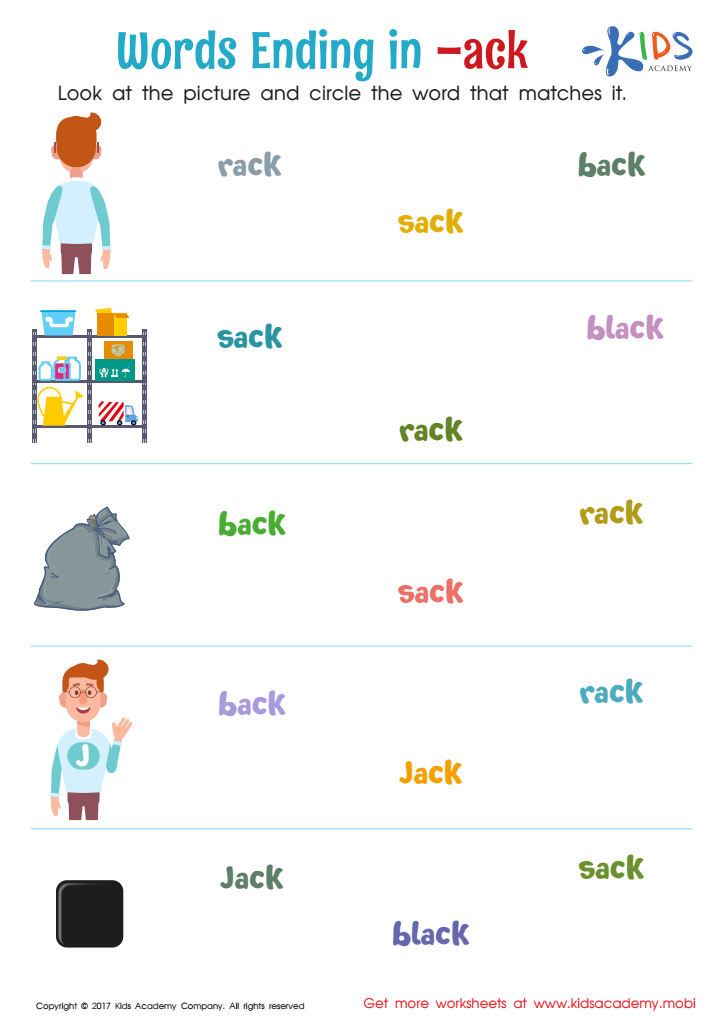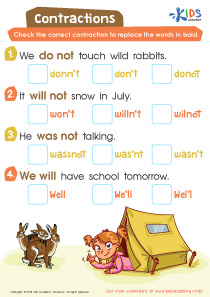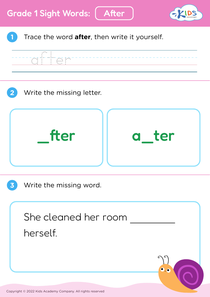RF.1.2 Phonological Awareness worksheets With Answers for Grade 1 - Page 2
31 filtered results
-
From - To
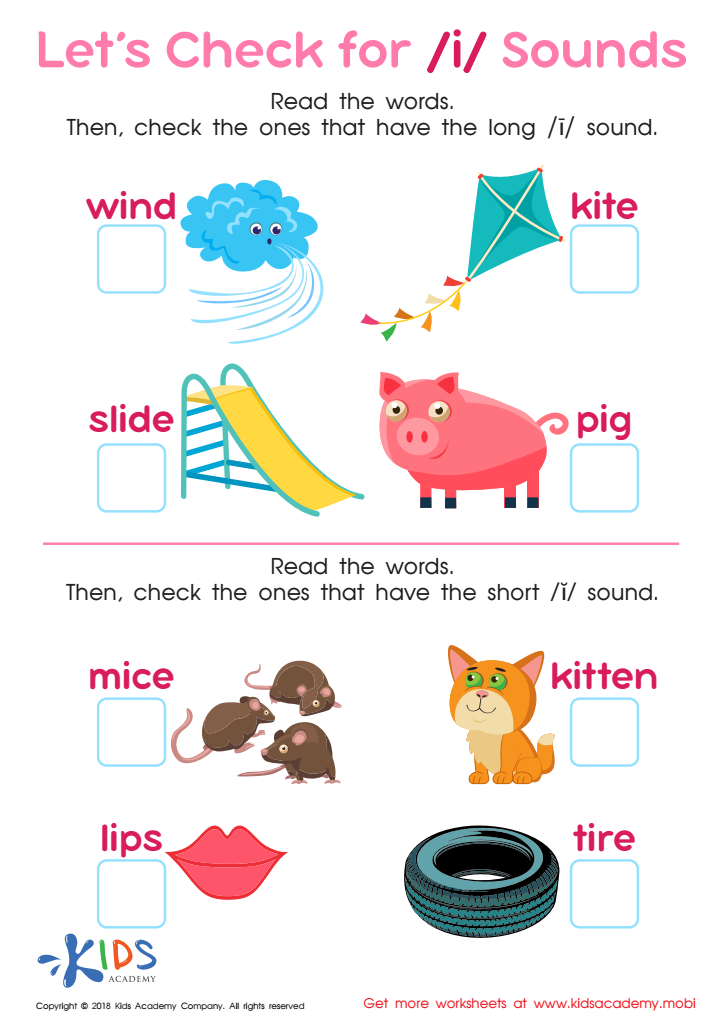

Let's Check for «i» Sounds Worksheet
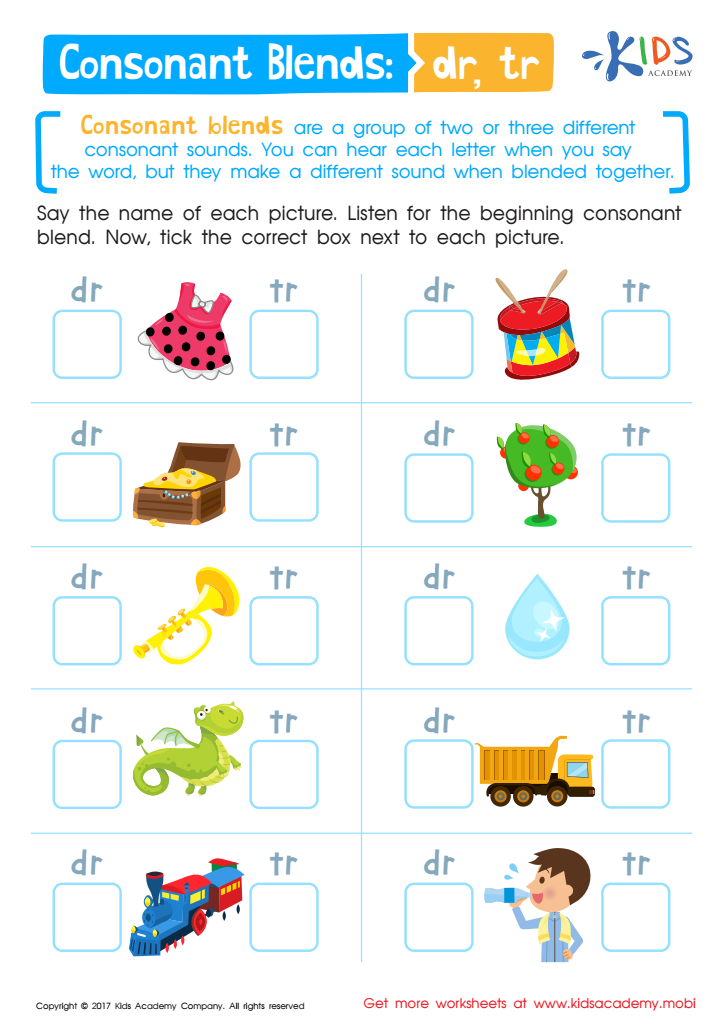

Consonant Blends: "Dr" and "Tr" Printable


Phonics and Word Recognition: Assessment 1 ELA Worksheet
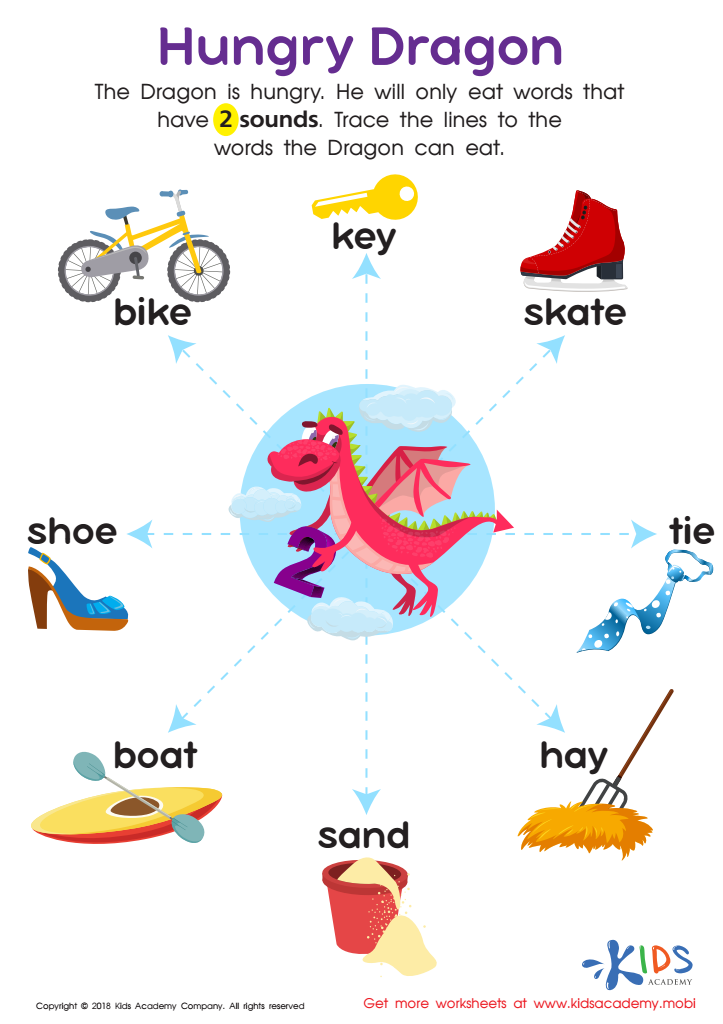

Hungry Dragon Worksheet
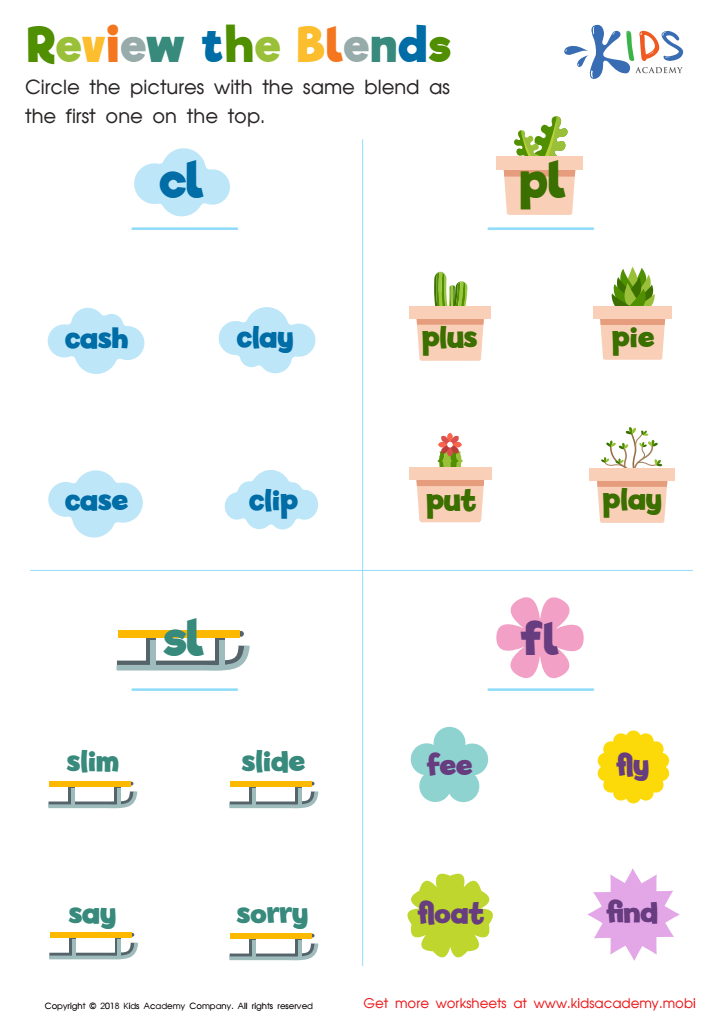

Review the Blends Worksheet
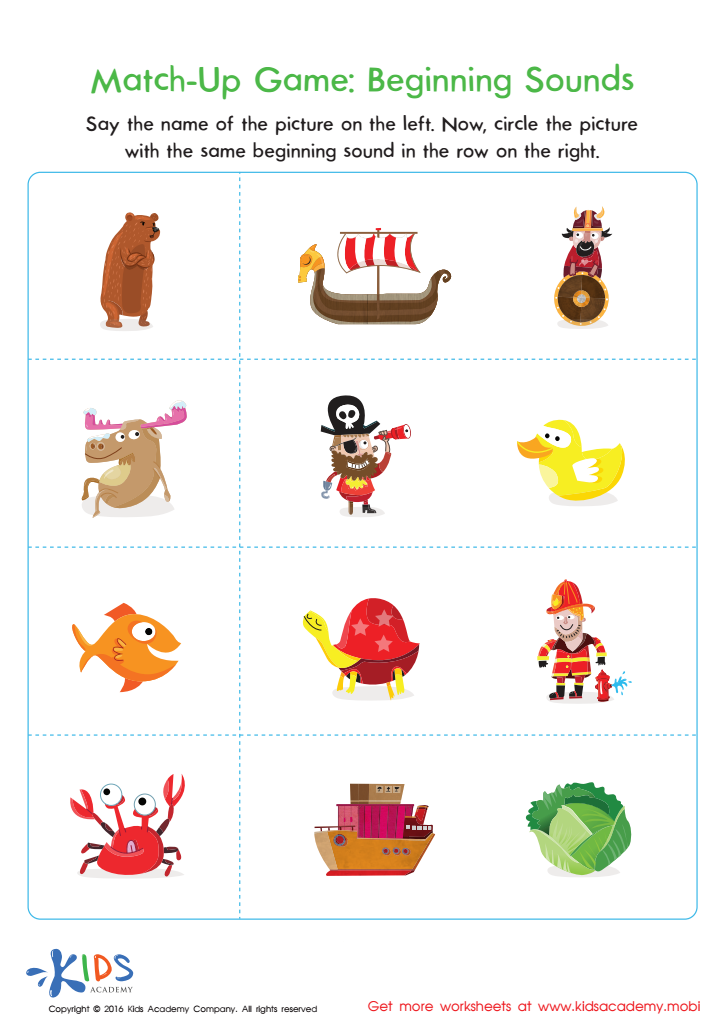

Match–Up Game: Beginning Sounds Worksheet
Phonological awareness, as outlined in the RF.1.2 standard, is crucial for young learners, especially in Grade 1. This skill refers to a child's ability to recognize and manipulate sounds in spoken language, including rhymes, syllables, and phonemes. Developing phonological awareness is foundational for reading proficiency and overall literacy success.
Firstly, phonological awareness helps children understand the relationship between sounds and letters. By being able to hear and manipulate sounds, students can decode words more effectively, which is essential as they start to read more complex texts. Additionally, strong phonological skills contribute to improved spelling and writing capabilities.
Moreover, engaging with this aspect of learning can foster a child's confidence. When children grasp these fundamental skills, they become more enthusiastic readers, leading to a more positive attitude towards literacy and learning in general.
Teachers and parents should prioritize activities that enhance phonological awareness, such as singing songs, playing rhyming games, and engaging in read-alouds. By creating an enjoyable and supportive environment for this skill, adults can lay a solid foundation for children’s future academic success. Thus, focusing on RF.1.2 phonological awareness ultimately promotes children’s reading fluency, comprehension, and a lifelong love for learning.

 Assign to My Students
Assign to My Students
